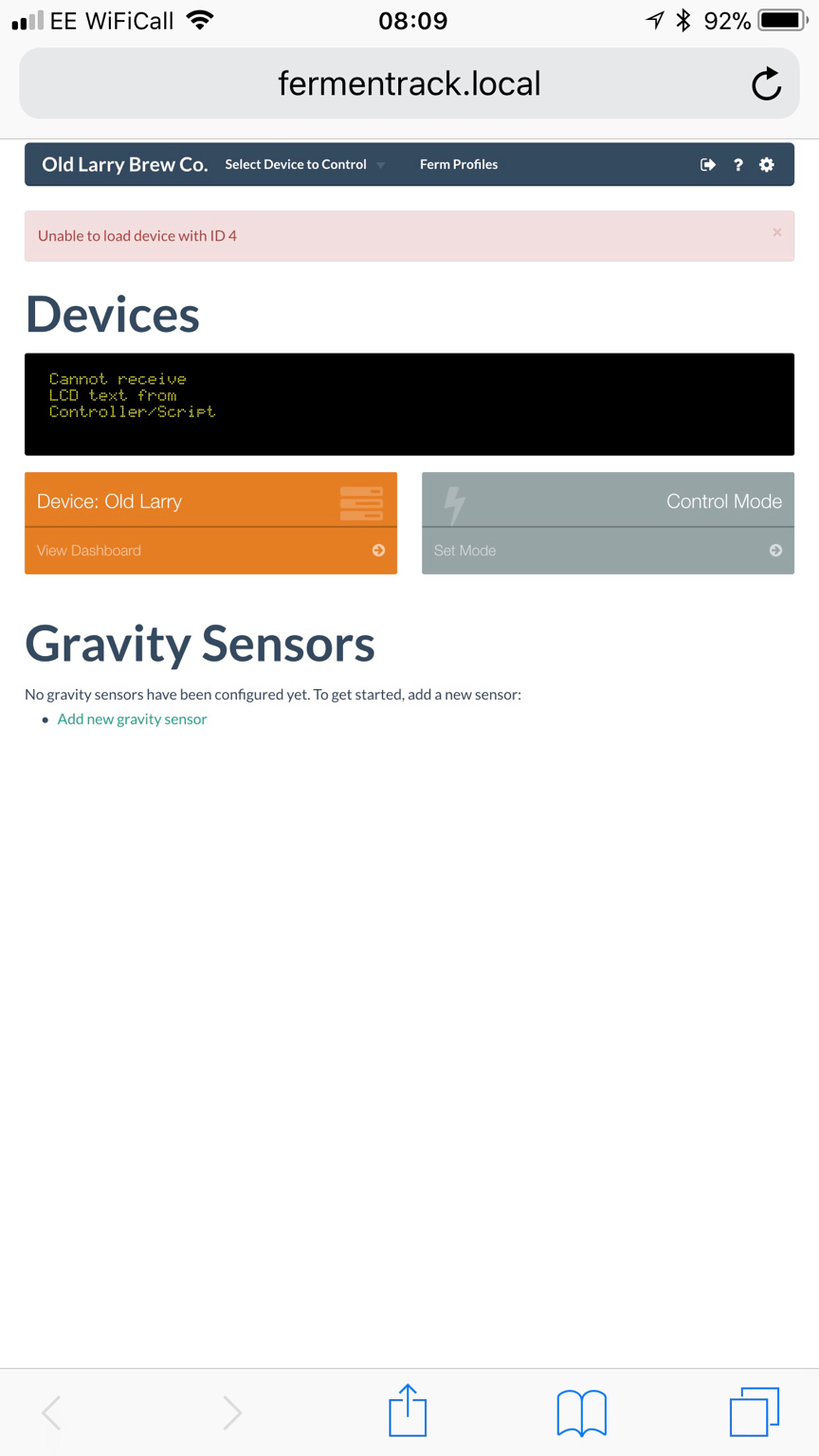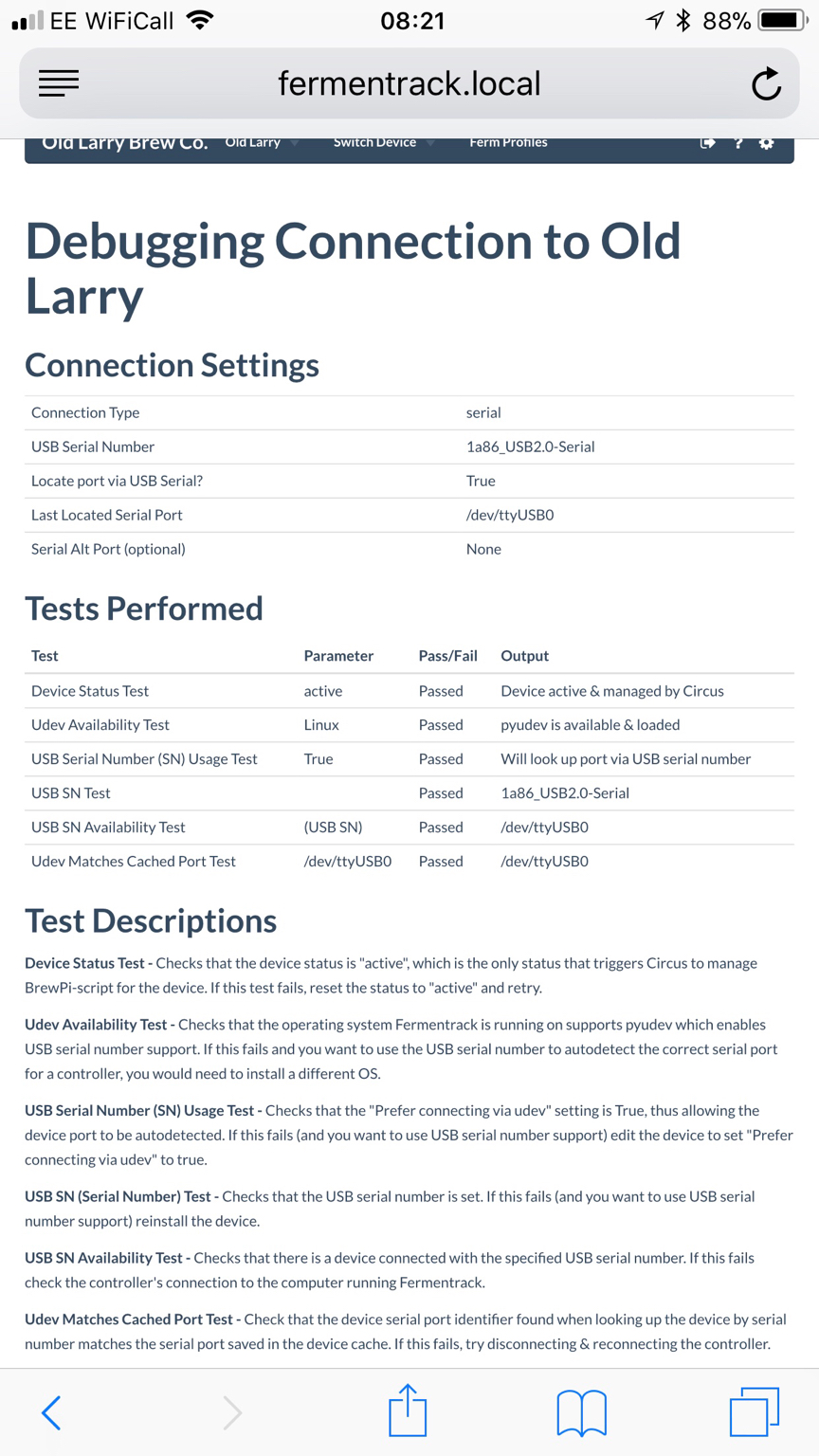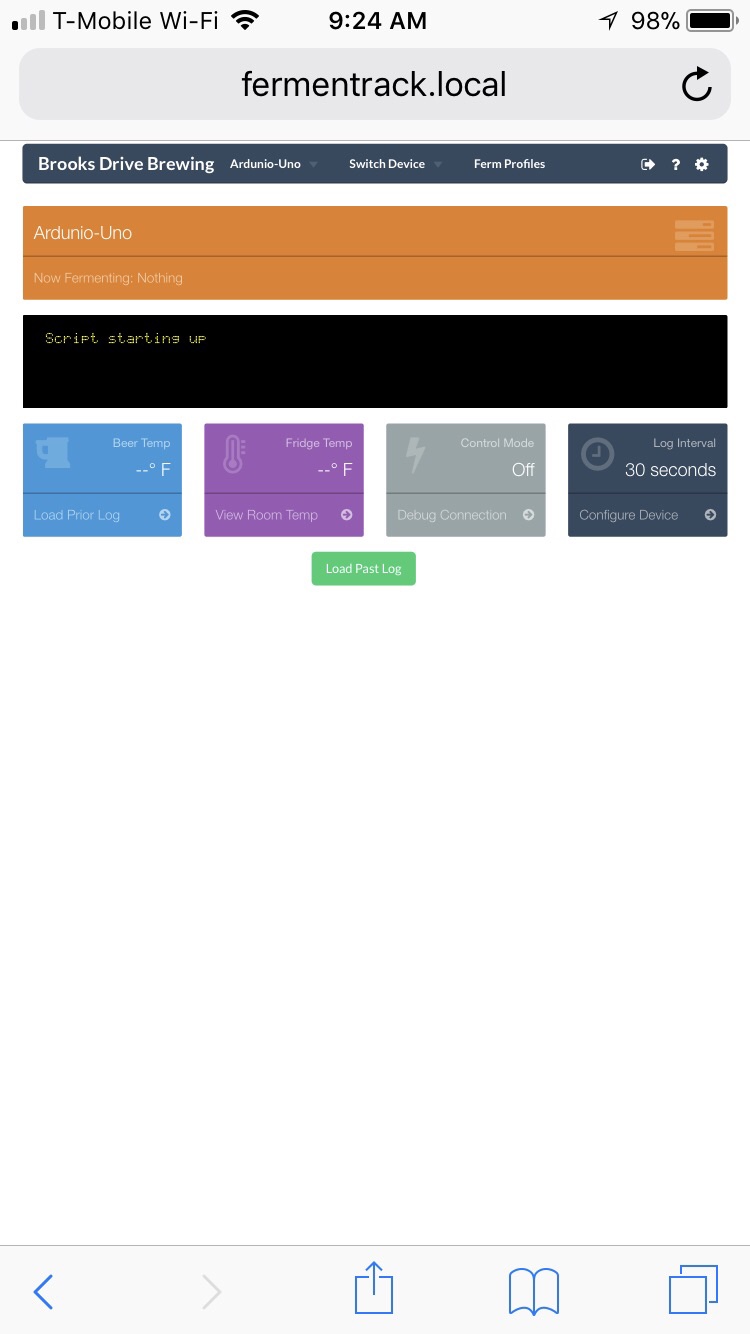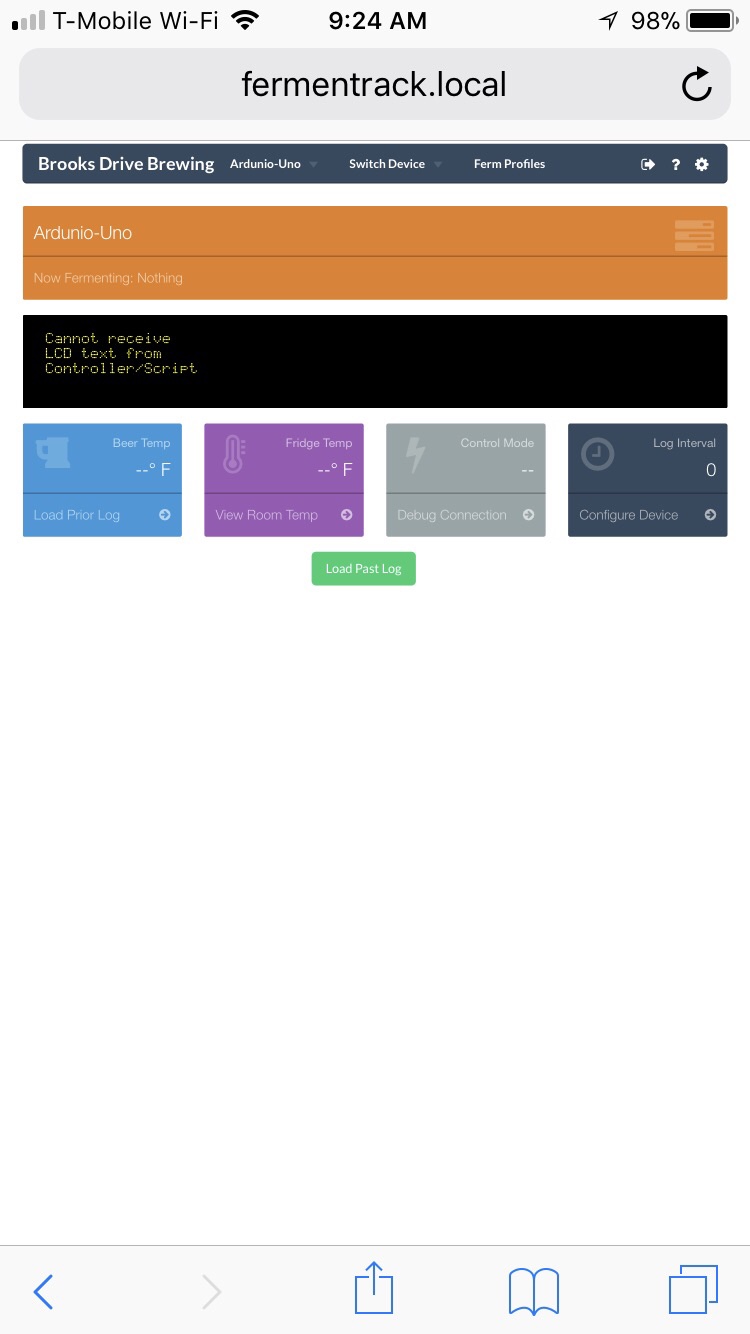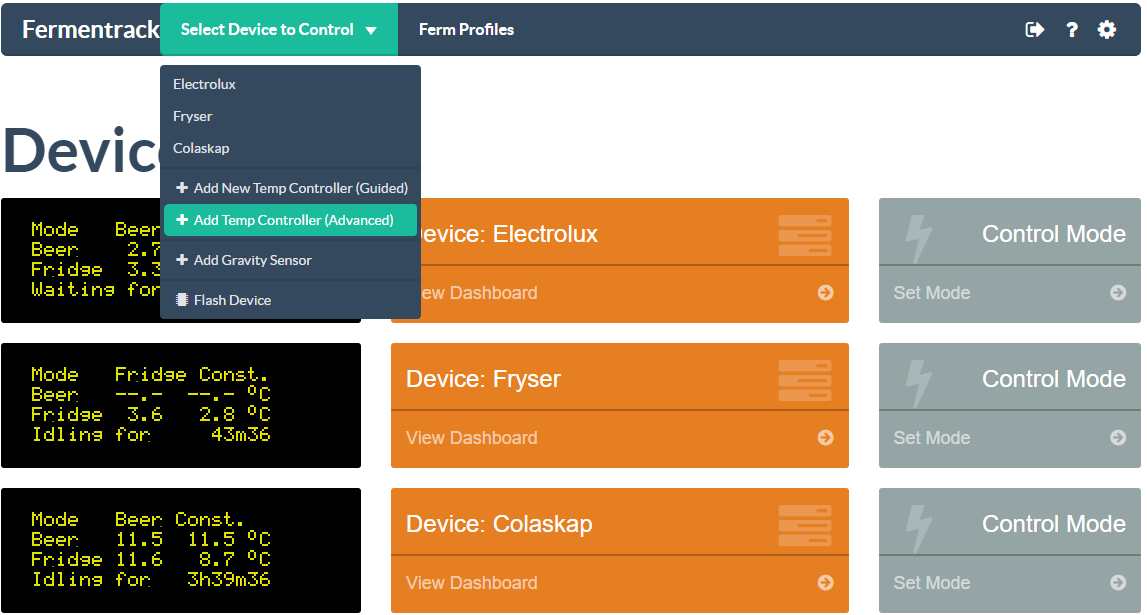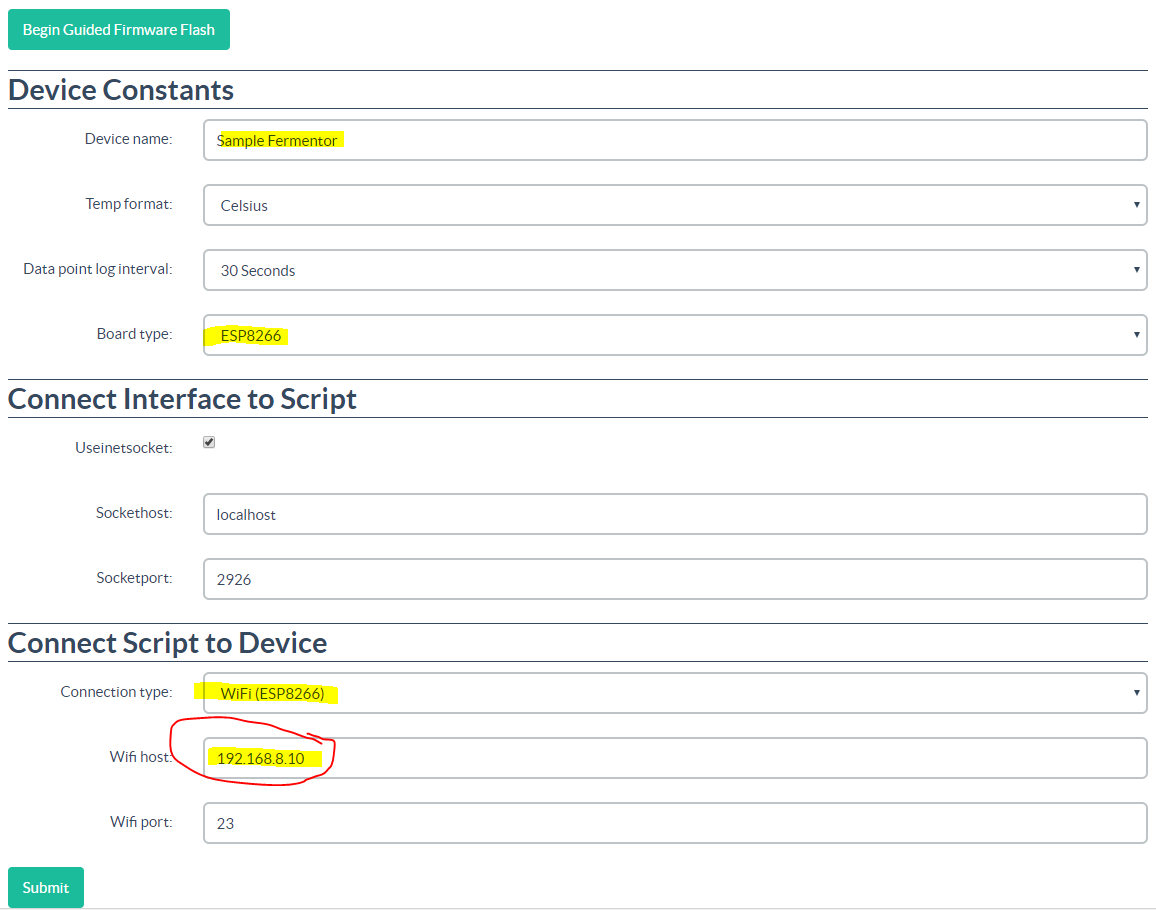I did the full update, started fermentrack but when I try to access my devices or go into settings I get a
TemplateDoesNotExist
am I the only one getting this?
Edit: Did a restart, its all working now

Edit #2: But flashing a new firmware does not work, this is the error log:
Environment:
Request Method: GET
Request URL:
http://10.0.1.5/firmware/
Django Version: 1.11.11
Python Version: 3.5.3
Installed Applications:
['django.contrib.admin',
'django.contrib.auth',
'django.contrib.contenttypes',
'django.contrib.sessions',
'django.contrib.messages',
'django.contrib.staticfiles',
'app.apps.AppConfig',
'firmware_flash.apps.AppConfig',
'gravity.apps.GravityAppConfig',
'constance',
'constance.backends.database',
'huey.contrib.djhuey']
Installed Middleware:
['django.middleware.security.SecurityMiddleware',
'django.contrib.sessions.middleware.SessionMiddleware',
'django.middleware.common.CommonMiddleware',
'django.middleware.csrf.CsrfViewMiddleware',
'django.contrib.auth.middleware.AuthenticationMiddleware',
'django.contrib.messages.middleware.MessageMiddleware',
'django.middleware.clickjacking.XFrameOptionsMiddleware']
Traceback:
File "/home/fermentrack/venv/lib/python3.5/site-packages/django/core/handlers/exception.py" in inner
41. response = get_response(request)
File "/home/fermentrack/venv/lib/python3.5/site-packages/django/core/handlers/base.py" in _get_response
187. response = self.process_exception_by_middleware(e, request)
File "/home/fermentrack/venv/lib/python3.5/site-packages/django/core/handlers/base.py" in _get_response
185. response = wrapped_callback(request, *callback_args, **callback_kwargs)
File "/home/fermentrack/venv/lib/python3.5/site-packages/django/contrib/auth/decorators.py" in _wrapped_view
23. return view_func(request, *args, **kwargs)
File "/home/fermentrack/fermentrack/app/decorators.py" in _wrapped_view
27. return view_func(request, *args, **kwargs)
File "/home/fermentrack/fermentrack/firmware_flash/views.py" in firmware_select_family
57. if config.FIRMWARE_LIST_LAST_REFRESHED < timezone.now() - datetime.timedelta(hours=24):
Exception Type: TypeError at /firmware/
Exception Value: unorderable types: str() < datetime.datetime()























































![Craft A Brew - Safale S-04 Dry Yeast - Fermentis - English Ale Dry Yeast - For English and American Ales and Hard Apple Ciders - Ingredients for Home Brewing - Beer Making Supplies - [1 Pack]](https://m.media-amazon.com/images/I/41fVGNh6JfL._SL500_.jpg)

